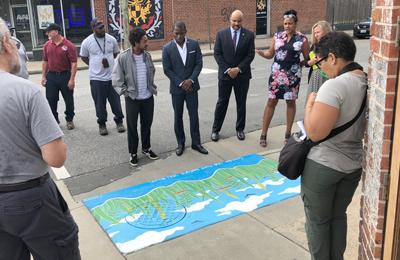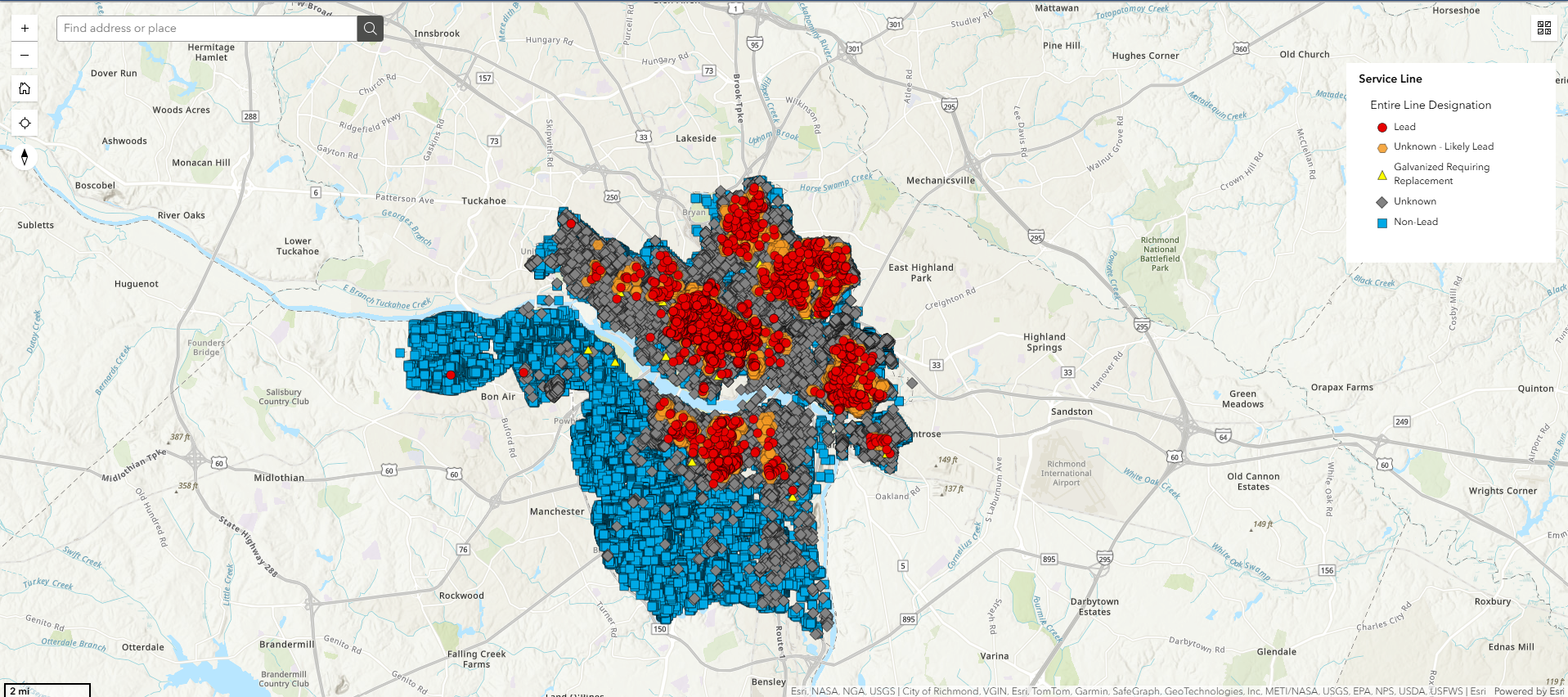Click here to view the map that identifies the material of water service lines.
Click here to start the survey.
Click here for survey instructions.
Click here if you need plumber assistance.
Education and Outreach
The City's Public Education and Outreach program goes out and educates citizens of all ages on the benefits of keeping stormwater clean. Civic groups and community meetings hearing how each citizen can help the city control stormwater runoff and use management practices to prevent pollution from entering our streams and rivers.
How Does Stormwater Affect Me?
Stormwater is the portion of rainfall that does not soak into the ground (infiltrate) and runs off surfaces such as driveways, yards, and parking lots and into the storm sewer system and, ultimately, into the James River. Stormwater does not get treated before it enters our waterways. The U.S. Environmental Protection Agency says stormwater is the nation's largest water quality problem, as stormwater picks up pollutants and carries them to our streams and rivers. These pollutants include trash, oil, household chemicals, pesticides, herbicides, pet waste, septic tank overflows, and sediment. These pollutants can cause unsafe drinking and swimming water, fish kills, and other environmental and human health problems.
Clogged storm drains and catch basins full of trash and debris can attract pests, create odors, and become a breeding ground for mosquitoes. Clogged drains can also cause local flooding, which can damage property.
How Can I Help?
- Pick up the poop. Pet waste contains bacteria that contaminates the James River. Always pick up pet waste and throw it in the trash whether you're at home, on a walk or away.
- Only rain in the drain. Do not dispose of trash, leaves, debris or toxic substances in storm drains.
- Install a rain barrel at your home and collect water to use for your garden.
- Utilize curbside recycling in your neighborhood.
- Do not over fertilize your lawn. Do a soil test before you apply fertilizer and follow the recommendations.
- Wash your car on grass, not a hard surface or take your car to the carwash where the water is recycled.
- Keep our sewers “FOG-free." FOG stands for fats, oils and grease. Avoid putting grease down the drain where it builds up and blocks the pipes.
- Do not flush wash waters or wastewaters into the storm drain. Industries that discharge wastewaters are required to apply for an Industrial Pretreatment Permit from the Department of Public Utilities. Information on wastewater treatment is available here on DPU's website.
Current Outreach Projects
Drain Art Program
Our Drain Art Program uses art to promote education about pollution and how it affects the James River. The program and more information is hosted at RVAH2O.org.

Richmond Public Schools
The Stormwater Utility's educational outreach program seeks to educate students about stormwater, conservation, and protecting our local environment.
Pet Waste Campaign
Pet waste is a large contributor to the high bacteria count found in many Richmond streams. Pet owners need to be aware that pet waste is not fertilizer and that runoff impacts the heatlh of our streams. The purpose of the "Pick Up the Poop" campaign is to help bring awareness to the many pet owners in the city.








